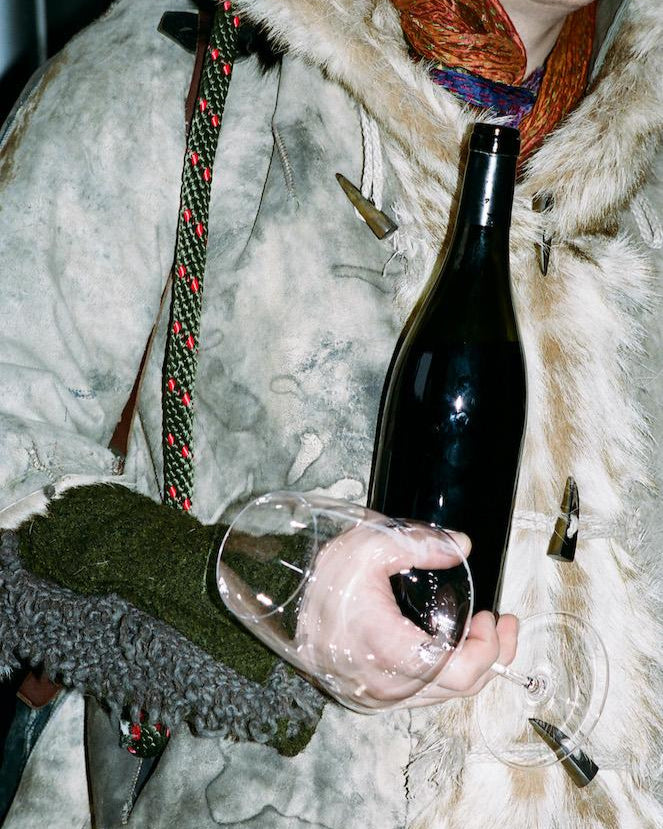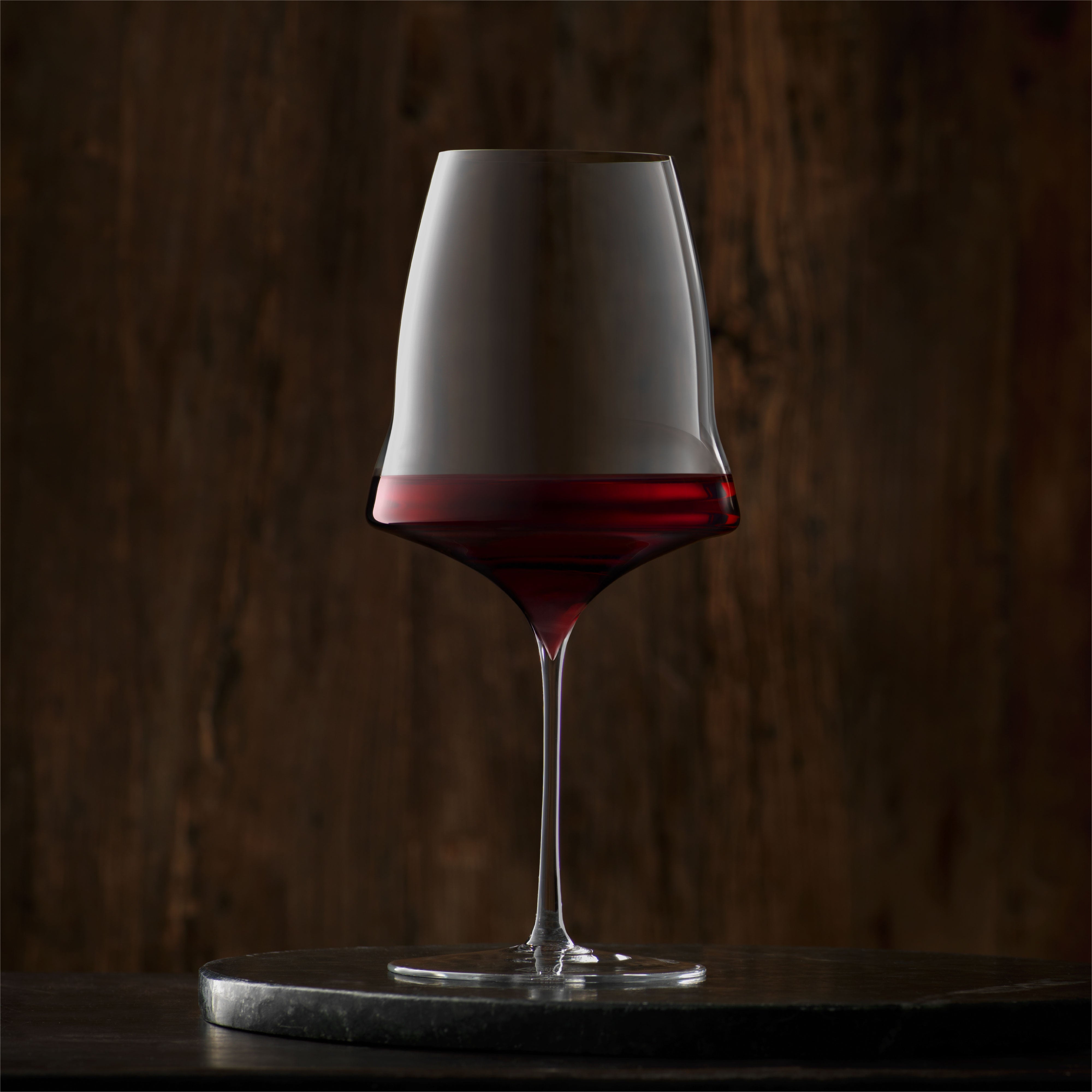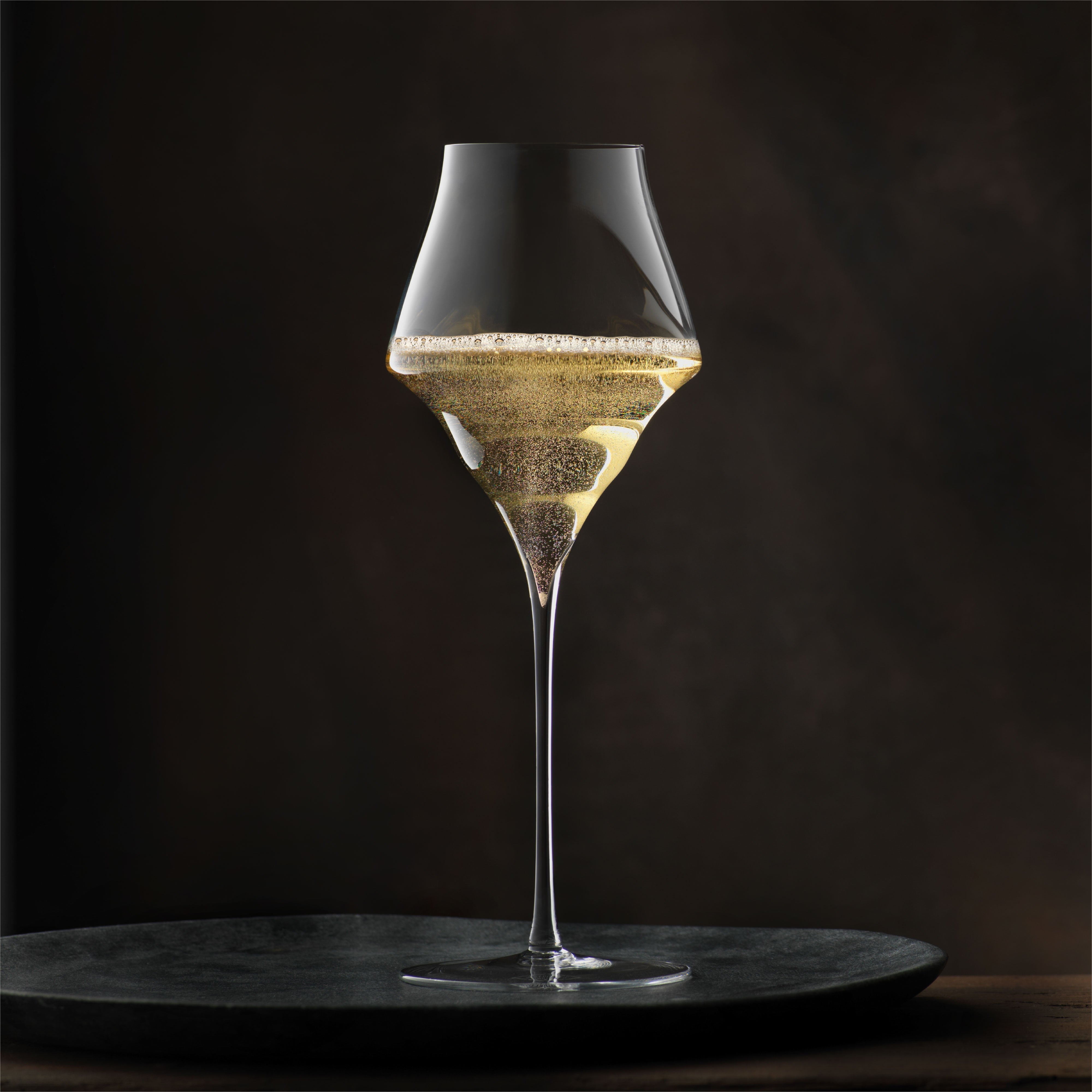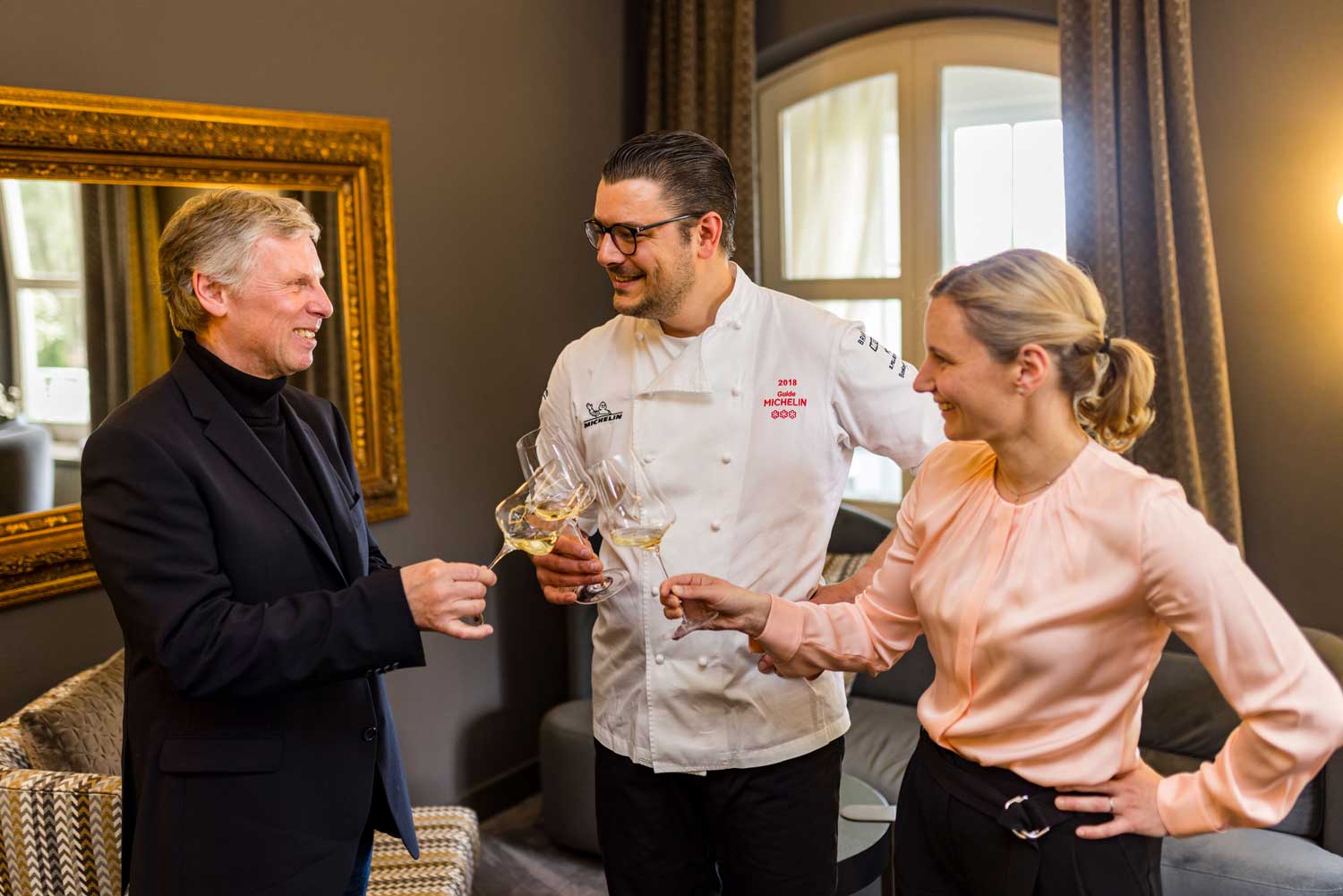Billy Wagner is the award-winning sommelier and owner of the starred Berlin restaurant Nobelhart & Schmutzig. To complement his “brutally local” cuisine, he presents one of the most unusual drinks menus in Germany: Amongst the 900 items you will find only beverages which Wagner himself finds interesting, whether that’s a natural wine from the Jura region, an organic Lambrusco from Emilia-Romagna, a pear-cider or a beer brewed by Trappist monks. For him, the Josephinenhütte glasses are a development of the rich diversity, through which he shows his favorite choices of drinks. A conversation about the triad interplay of wine, glass and taste.
Billy Wagner, is wine a good medium for communication?
Absolutely. Wine drinkers talk to each other, they exchange values. People come to us because they want to connect through the wine. Other restaurants choose their wine list with the aim of providing the best for their guests. We do the opposite: we challenge them. The superficial drinker will not have a good time at our restaurant.


You only serve wines which aren’t mainstream, and less popular flavors such as sour or bitter are included on the menu. Do you feel as though this may sometimes be too much for your guests?
Our cuisine demands a certain kind of wine and many people have a very limited imagination when it comes to tasting. They believe that red wine always has to be heavy, white wine has to be fruity, light and ice-cold. There is nothing in-between. If I have this sort of guest, I try to match this profile of taste – but with wines from our cellar. The guest will get a wine he likes, even if it doesn’t match the food. The concept that the wine always has to match the food is wrong, it’s more important that you drink the wine you like.
You could make it easier for yourself and put a Pinot Grigio on your menu, a wine many people like. Why do you not offer one?
It is difficult to find a good Pinot Grigio that we also like. Pinot Grigio is a type of grape that often comes across as very agreeable. Nicely juicy, with an emphasis on fruitiness. And this defines a sort of beat which I find boring. I actually consider myself to be better than this kind of wine. I also don’t want people to drink poison, alcohol which resulted from a lack of time. They can do that 364 days a year. But we serve something different.
Your restaurant also lives for the details, such as the designer-coats for the smokers who are banished to stand outside, or the soap in the lavatories which smells of the spices used in the southern German black pudding specialty “red sausage”. What qualities must a glass have to match your high expectations of a perfect restaurant?
The first requirement is that the wine must be presented in the best way possible. But I also consider the sensation of touching the glass to be important. The empty glass should already initiate feelings through sight and touch, just like the surface of a table, a plate or a napkin. The glass must be an all around sensory experience.
Holding a hand-blown glass, such as this one, by Josephinenhütte: how does it compare to an industrially manifactured glass?
First of all, you notice its lightness. It’s a very delicate, elegant feeling. The fact that you can feel its distinct texture also conveys the high value. This is important to me. The appearance also plays an important role, of course. A glass should ideally always also be an example of excellent design. Most people buy a glass because of its beautiful appearance, which is totally legitimate. But we buy wine glasses first and foremost in order to highlight the wine.
When is a glass good for the wine?
It is absolutely possible to drink wine out of a coffee cup. The problem with this, is that it’s impossible to smell the wine, because it cannot develop its aroma in the cup. It slides along the edges but does not get out. With a simple, industrially produced glass, you at least have the chance to smell something. Since what you taste is always related to what you smell, how you perceive the wine with your nose is a deciding factor. A good glass is the best possible way of presenting wine to all five of our senses.
"In my opinion, the undulation definitely has a clear function. The bend makes a lot of sense."
Billy Wagner
You use wine glasses from the Josephine series at your restaurant. Do you consider the specific undulation an aesthetic or a functional element?
In my opinion, the undulation definitely has a clear function. The bend makes a lot of sense, especially for the champagne flute. Champagne and sparkling wines made from apples or rhubarb taste excellent out of this glass. We also find that beer goes well in these glasses. The aroma comes across as fruity, lively and very precise.
Is a visit to a restaurant influenced by beautiful glass?
When we first opened, we put a lot of consideration and thought into the moment when the guest takes a seat at a table in our restaurant for the first time. How does that feel? Is it too light, too dark, is the temperature pleasant? What does the guest sit on? Is the chair comfortable? Does it have armrests, can you put your feet somewhere? We consider all these things to be very important, in addition to providing a nice atmosphere in the restrooms. Even if the food or anything else is not to their liking, there should still be enough details for our guests to think: this is a great restaurant. And these wonderful wine glasses!
Can a great wine glass make a bad wine taste better?
You appreciate a drink more from a good glass. A good glass is honest with a wine, because it allows it to display its characteristics better. What I like about the glasses from Josephinenhütte is that they show off the best parts of a drink: like when you look at yourself in the mirror thinking ‘I look so good today!’ But they are well balanced, the glass is definitely no ripoff. It would be mean to drink a 2,99 Euro wine out of Josephinenhütte glasses. You would smell things you just don’t want to smell. So, if you own good wine glasses, you have to drink good wine.
For you, there is a political aspect when it comes to eating. You like to promote quality and diversity. How is drinking done in a better way?
If you drink a Merlot from Sicily, it might be a wonderfully tasting wine. For planting the Merlot though, a Nero d’Avola was very likely torn out. And in this, we had to give way to a variety of international grapes. By drinking those wines, you are complicit in the standardization, in a growing unity of wines. This is why it matters what type of wine you drink and how it is produced. If nobody were to purchase wines for 2,99 Euros, nobody would make them anymore.





